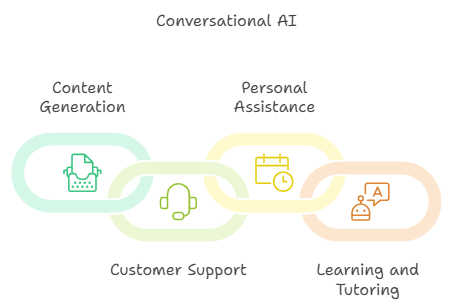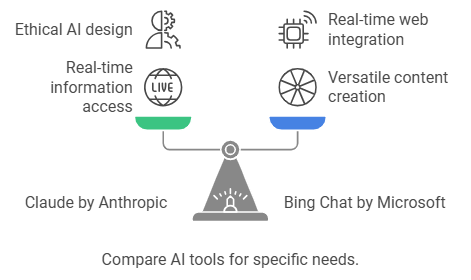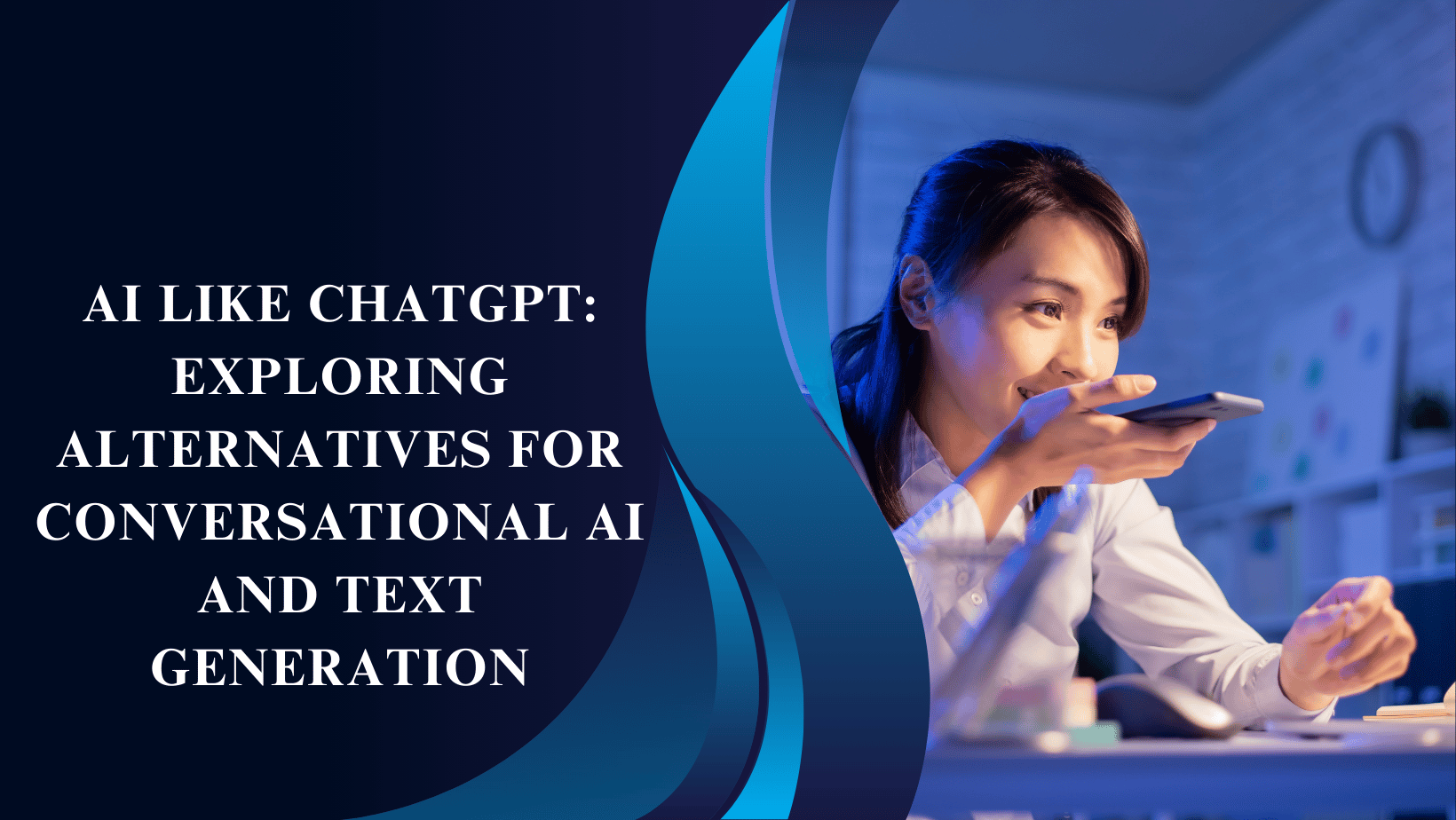AI Like ChatGPT: Exploring Alternatives for Conversational AI and Text Generation
With the development of AI technology, conversational AIs like ChatGPT have transformed how we interact with computers, assisting with tasks like answering questions, generating content, and offering advice. ChatGPT is widely known for its flexibility and ease of use, but several other AIs provide similar, and sometimes unique, features. Here’s a closer look at alternatives that can serve as valuable tools in various applications.
What is ChatGPT?
ChatGPT is an advanced AI model created by OpenAI, primarily for natural language understanding and text generation. ChatGPT can assist users with everything from content writing to customer support, and its conversational abilities make it popular in both professional and personal settings.
Key Uses for Conversational AI
Conversational AI has many applications across different industries. Some of the most common uses include:
- Content Generation – Many AI models can help users write articles, social media posts, and emails.
- Customer Support – AI tools like ChatGPT are often employed to respond to customer queries and solve problems quickly.
- Personal Assistance – From scheduling to reminders, AI tools serve as virtual personal assistants.
- Learning and Tutoring – Many AI models are designed to assist students with information and explanations on a variety of topics.

Top ChatGPT Alternatives
If you’re looking for other AI tools with functions similar to ChatGPT, here are some of the top options:
Google Bard
Google Bard is Google’s answer to ChatGPT, designed with a focus on research and quick access to up-to-date information. It utilizes Google’s large language model and often integrates seamlessly with Google Search, allowing it to pull relevant and current information in real time.
- Key Features: Real-time information from Google Search, responsive design, and integration with Google Workspace tools.
- Best Use Cases: Quick research, task automation, and Google integration.
Jasper AI
Jasper AI is a popular choice for content creators and marketers who need assistance with writing. Known for its versatility, Jasper comes equipped with various templates for blogs, ads, and social media posts. It allows users to select tones and adjust writing styles, making it ideal for personalized content creation.
- Key Features: Pre-built templates, tone adjustment, content recommendations.
- Best Use Cases: Marketing, social media, and blog content creation.
Claude by Anthropic
Claude is an accessible AI developed by Anthropic, focusing on user-friendly, ethical AI interaction. Named after Claude Shannon, this model aims to be an intuitive conversational tool for users who need an easy-to-use, secure, and accessible AI.
- Key Features: Simple user interface, ethical AI design, conversational capabilities.
- Best Use Cases: Everyday tasks, customer support, and general assistance.
Bing Chat by Microsoft
Integrated into Bing Search, Bing Chat leverages OpenAI’s technology, similar to ChatGPT, but with added benefits of web searches and real-time updates. Since it is integrated into the Bing search engine, Bing Chat has the advantage of pulling the most recent information from the web.
- Key Features: Real-time web integration, Microsoft app compatibility, web-based accessibility.
- Best Use Cases: Real-time information queries, integrated browsing, research.
LLaMA by Meta
Meta’s LLaMA (Large Language Model Meta AI) is aimed at providing a conversational AI that can be adapted for various use cases, with applications in both professional and casual settings. While not publicly available to individual users in the same way as ChatGPT, it is designed for research and development.
- Key Features: Research-oriented, conversational design, adaptable for multiple applications.
- Best Use Cases: Research, professional assistance, and industry-specific applications.

Comparing Key Features of ChatGPT Alternatives
| Feature | ChatGPT | Google Bard | Jasper AI | Claude | Bing Chat | LLaMA by Meta |
|---|---|---|---|---|---|---|
| Real-time Info | No | Yes | No | No | Yes | Yes |
| Best for Content | General | Research | Content Writing | General | General | Research |
| User Interface | Simple | Google-friendly | User-friendly | Simple | Web-integrated | Research-based |
| Unique Capabilities | Adaptability | Google Search | Content templates | Ethical AI | Bing Search | Research focus |
How to Choose the Best AI for Your Needs
Selecting an AI tool can depend on several factors, including:
- Purpose: Determine if you need it for content creation, research, customer support, or another specific purpose.
- Budget: Some tools, like ChatGPT and Bing Chat, have free versions, while others may have subscription costs.
- Features: Check for specialized features like real-time search, templates, and user interface design.
- Accessibility: Ensure it integrates well with the platforms and tools you use regularly.
Security and Privacy with AI Tools
When using AI, it’s important to consider data security and privacy. While many tools have data encryption and privacy policies, always check the tool’s terms, especially if handling sensitive information. Choosing a reputable AI provider can help protect user data and ensure a safer experience.
Some related article
ChatGPT Roasts Instagram: A Satirical Look at the World of Social Media
Why is ChatGPT Not Working? Troubleshooting & Fixes
The ChatGPT Logo: A Deep Dive into Its Design, Meaning, and Evolution
Future Trends in AI Conversation Tools
As conversational AI evolves, we can expect improvements in areas like multilingual support, more accurate contextual understanding, and broader application in industries like healthcare and education. Real-time updates, increased personalization, and ethical AI advancements are also on the horizon.
Frequently Asked Questions (FAQs) AI Like ChatGPT
- What is the best AI alternative to ChatGPT?
- There is no one-size-fits-all answer. Google Bard is great for real-time information, Jasper is ideal for content creation, and Claude by Anthropic offers a user-friendly experience.
- Are there any free alternatives to ChatGPT?
- Bing Chat is a popular free alternative that integrates with Bing’s search engine, allowing real-time updates.
- Can these AIs be used for professional tasks?
- Yes, many of these AIs are suitable for professional use, including content creation, research, and customer support.
- Is it safe to use AI tools for customer support?
- Yes, but it’s important to ensure that the AI follows data privacy policies and is used in a way that aligns with your business’s data security practices.
- What industries can benefit most from using ChatGPT alternatives?
- Industries like marketing, education, customer service, and research often find great value in using AI tools.
Conclusion
in conclusion, while ChatGPT has set a high standard for conversational AI and text generation, it is crucial to acknowledge the variety of alternatives available that bring unique strengths to the table. From specialized models like GPT-3.5 and GPT-4, which offer more refined and context-aware responses, to open-source projects like GPT-Neo and T5 that allow for customization and transparency, the landscape of conversational AI is rapidly expanding. Additionally, other players such as Google’s LaMDA, DeepMind’s Chai, and even more niche solutions, each cater to specific needs, whether it’s human-like dialogue, task-specific interactions, or resource optimization.
The future of conversational AI lies not only in developing more advanced models but also in ensuring that these technologies are ethical, transparent, and accessible. Whether it’s improving multilingual support, enhancing contextual understanding, or ensuring privacy and security, these alternatives provide valuable options for different applications across industries. As AI continues to evolve, the collaboration between different approaches will likely drive further innovation, making conversational AI an integral part of our digital lives.


